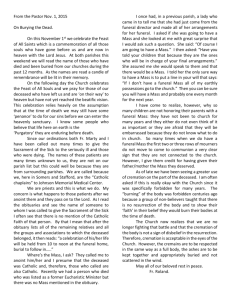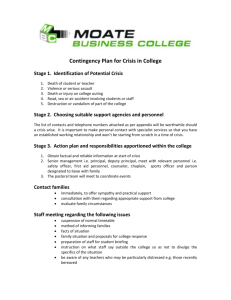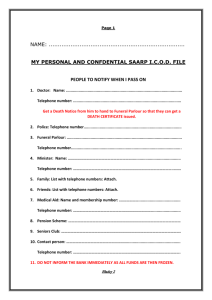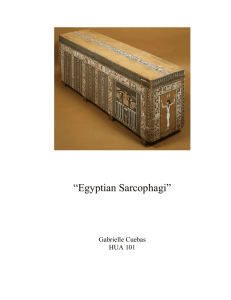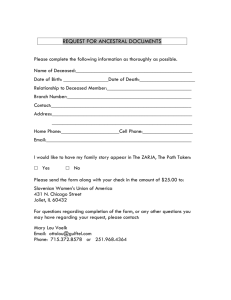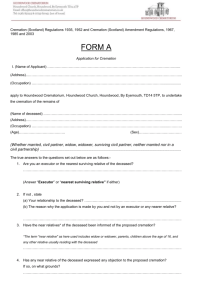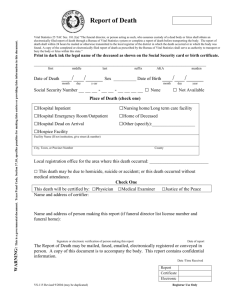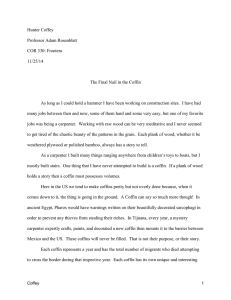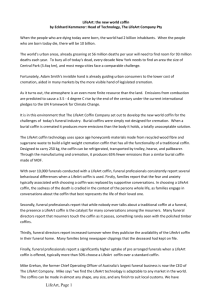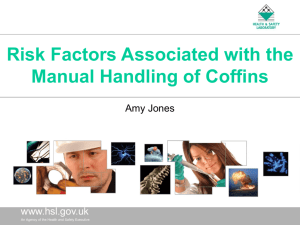France - Spain : A draft bilateral agreement on repatriation of
advertisement
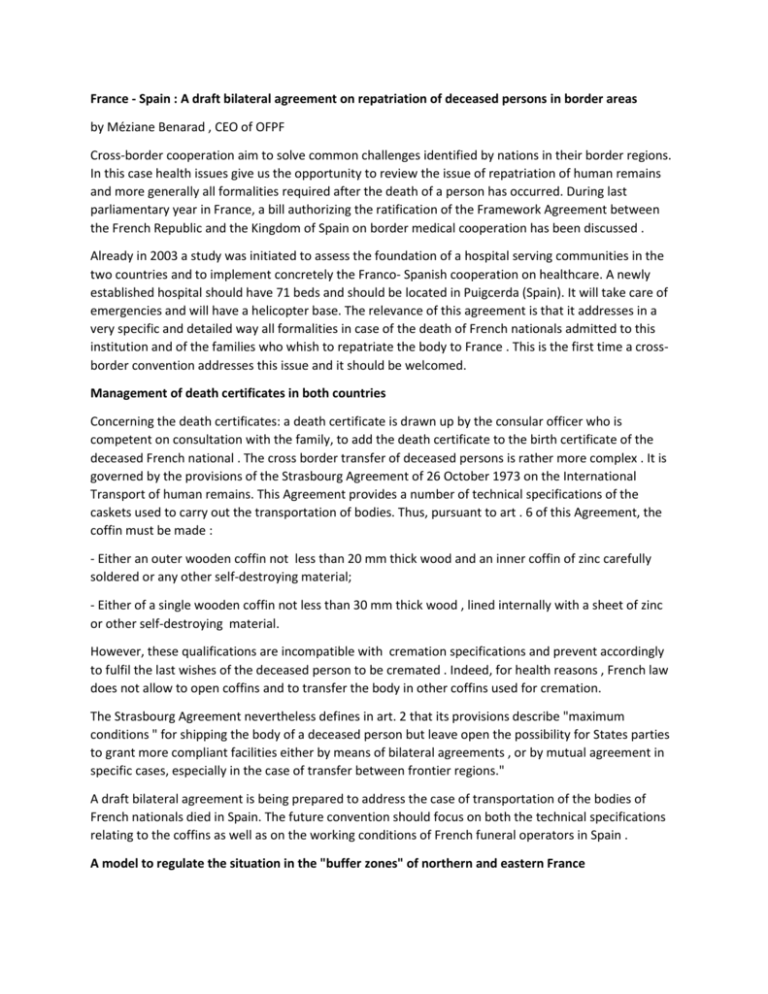
France - Spain : A draft bilateral agreement on repatriation of deceased persons in border areas by Méziane Benarad , CEO of OFPF Cross-border cooperation aim to solve common challenges identified by nations in their border regions. In this case health issues give us the opportunity to review the issue of repatriation of human remains and more generally all formalities required after the death of a person has occurred. During last parliamentary year in France, a bill authorizing the ratification of the Framework Agreement between the French Republic and the Kingdom of Spain on border medical cooperation has been discussed . Already in 2003 a study was initiated to assess the foundation of a hospital serving communities in the two countries and to implement concretely the Franco- Spanish cooperation on healthcare. A newly established hospital should have 71 beds and should be located in Puigcerda (Spain). It will take care of emergencies and will have a helicopter base. The relevance of this agreement is that it addresses in a very specific and detailed way all formalities in case of the death of French nationals admitted to this institution and of the families who whish to repatriate the body to France . This is the first time a crossborder convention addresses this issue and it should be welcomed. Management of death certificates in both countries Concerning the death certificates: a death certificate is drawn up by the consular officer who is competent on consultation with the family, to add the death certificate to the birth certificate of the deceased French national . The cross border transfer of deceased persons is rather more complex . It is governed by the provisions of the Strasbourg Agreement of 26 October 1973 on the International Transport of human remains. This Agreement provides a number of technical specifications of the caskets used to carry out the transportation of bodies. Thus, pursuant to art . 6 of this Agreement, the coffin must be made : - Either an outer wooden coffin not less than 20 mm thick wood and an inner coffin of zinc carefully soldered or any other self-destroying material; - Either of a single wooden coffin not less than 30 mm thick wood , lined internally with a sheet of zinc or other self-destroying material. However, these qualifications are incompatible with cremation specifications and prevent accordingly to fulfil the last wishes of the deceased person to be cremated . Indeed, for health reasons , French law does not allow to open coffins and to transfer the body in other coffins used for cremation. The Strasbourg Agreement nevertheless defines in art. 2 that its provisions describe "maximum conditions " for shipping the body of a deceased person but leave open the possibility for States parties to grant more compliant facilities either by means of bilateral agreements , or by mutual agreement in specific cases, especially in the case of transfer between frontier regions." A draft bilateral agreement is being prepared to address the case of transportation of the bodies of French nationals died in Spain. The future convention should focus on both the technical specifications relating to the coffins as well as on the working conditions of French funeral operators in Spain . A model to regulate the situation in the "buffer zones" of northern and eastern France For more than twenty years I am engaged in studying the inequalities of competition between funeral operators working in border areas , as well as the difficulties of transportation of bodies in these areas. A bilateral agreement was envisaged at the time ,between Belgium and Germany. It is obvious that the question of the use of zinc lined coffins for cremation remains unanswered. Bilateral agreements are expected to move towards greater simplification. Families are unable understand that one can carry a body from Lille to Nice to be cremated without using a zinc coffin , even though for the same operation between Mouscron (Belgium) and Lille, a distance of only a few kilometers such casketing is mandatory! In the European Union without borders the only branch for which borders and border formalities continue to exist is the funeral branch. The Franco- Spanish example will not fail to change the actual stand of affairs in order to achieve a suitable solution simplifying transfer operations of human remains, including in border areas . Article published in the French magazine " Resonance Funeral " No. 96 , December 2013 - January . 2014
